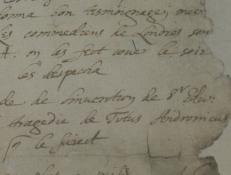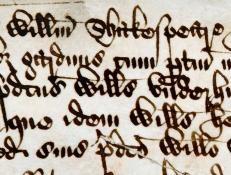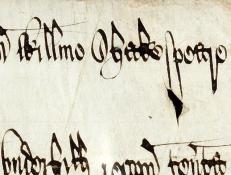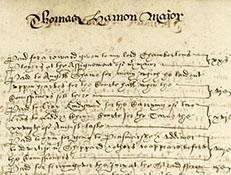To view a sortable list, please visit the Resource
All Documents
January 1596
SHAKESPEARE DOCUMENTED IS STILL GROWING! Descriptive content and transcriptions will continue to be added, updated and expanded. Check back for regular updates!
January 26, 1597
On January 29, 1597 John Shakespeare sold his neighbor, George Badger, a strip of land on the north-western boundary of John’s Henley Street property (now known as the Birthplace). The conveyance shown here is in Latin.
May 2-9, 1597
In May 1597, the freehold title to New Place passed from William Underhill to William Shakespeare. This would normally have been recorded in a formal deed of conveyance, signed by both parties.
May 8, 1597
In May 1597, the freehold title to New Place passed from William Underhill to William Shakespeare. This would normally have been recorded in a formal deed of conveyance, signed by the both parties.
1597
For details about the 1597 foot of fine, see the general essay for Shakespeare's purchase of New Place. The foot has a useful endorsement (the second image) recording the occasions when the final concord was "proclaimed" in open court, as requi
November 15, 1597
Lay subsidies were a type of tax based on personal wealth. In London, the collection of subsidies was managed at the local level of ward and parish. Each collection typically generated one lay subsidy roll and one default roll for each ward.
October 20, 1597
Richard III was entered into Liber C of the Stationers' Company on October 20, 1597.
ca. August 27, 1597
This document, part of the Rye Chamberlain’s Accounts, includes an August 1597 entry for a payment of 20 shillings to Shakespeare’s company, the Lord Chamberlain’s Men.
August 29, 1597
Richard II was entered into Liber C of the Stationers' Company on August 29, 1597. The title as entered reads "The Tragedye of Richard the Second".
May 4, 1597
For further details about the 1597 exemplification, see the general essay for Shakespeare's purchase of New Place.















